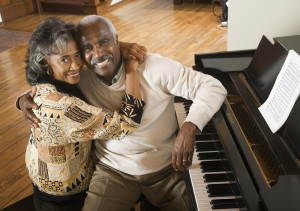Counseling & Behavior Modification
 Music Therapy can be used during counseling as an opportunity for creative expression, to facilitate communication, and for stress reduction. When using music therapy for behavior modification music is often used as a contingency or distraction, and can even make tasks more enjoyable. A board-certified music therapist (MT-BC) will design the appropriate program using “client-preferred music” for your needs.
Music Therapy can be used during counseling as an opportunity for creative expression, to facilitate communication, and for stress reduction. When using music therapy for behavior modification music is often used as a contingency or distraction, and can even make tasks more enjoyable. A board-certified music therapist (MT-BC) will design the appropriate program using “client-preferred music” for your needs.
- Anxiety
- Depression
- Discipline issues (family/personal)
- Addiction, Eating Disorders, Substance Abuse
- BiPolar Disorder, Trauma
- Behavior Disorders
- Emotional Disorders
- PTSD
- Individuals
- Couples
- Families
- Stress Reduction
The research says:
“The purpose of this study was to investigate the effects of 3 different types of music therapy interventions on levels of depression, stress, anxiety, and anger of female clients in substance abuse rehabilitation… data collected on daily scores, immediately before and after each session, indicated that individuals reported a decrease in depression, stress, anxiety, and anger immediately following the music therapy sessions.”
Cevasco, A. M., Kennedy, R., & Generally, N. R. (2005). Comparison of Movement-to- Music, Rhythm Activities, and Competitive Games on Depression, Stress, Anxiety, and Anger of Females in Substance Abuse Rehabilitation. Journal of Music Therapy, 42(1), 64–80.
The research says:
“Results indicate that subjects [pre-adolescents with emotional, learning, and behavior disorders] improved significantly after receiving both music therapy interventions. The most significant change in subjects was found on the aggression/hostility scale. These results suggest that group music therapy can facilitate the process of self-expression in emotionally disturbed/learning disabled adolescents and provide a channel for transforming frustration, anger, and aggression into the experience of creativity and self-mastery.”
Montello, L., & Coons, E. E. (1998). Effects of Active Versus Passive Group Music Therapy on Preadolescents with Emotional, Learning, and Behavioral Disorders. Journal of Music Therapy, 35 (1), 49–67.
The research says:
“Statistical comparisons showed a significant improvement of [traumatized refugees’] sleep quality in the music group, but not in the control group. A significant increase in well-being was found only in the intervention group…”
Jespersen, K. V., & Vuust, P. (2012). The Effect of Relaxation Music Listening on Sleep Quality in Traumatized Refugees: A Pilot Study. Journal of Music Therapy , 49 (2 ), 205–229.
For more information on music therapy for PTSD go to:
http://www.musictherapy.org/research/music_therapy_and_military_populations/
